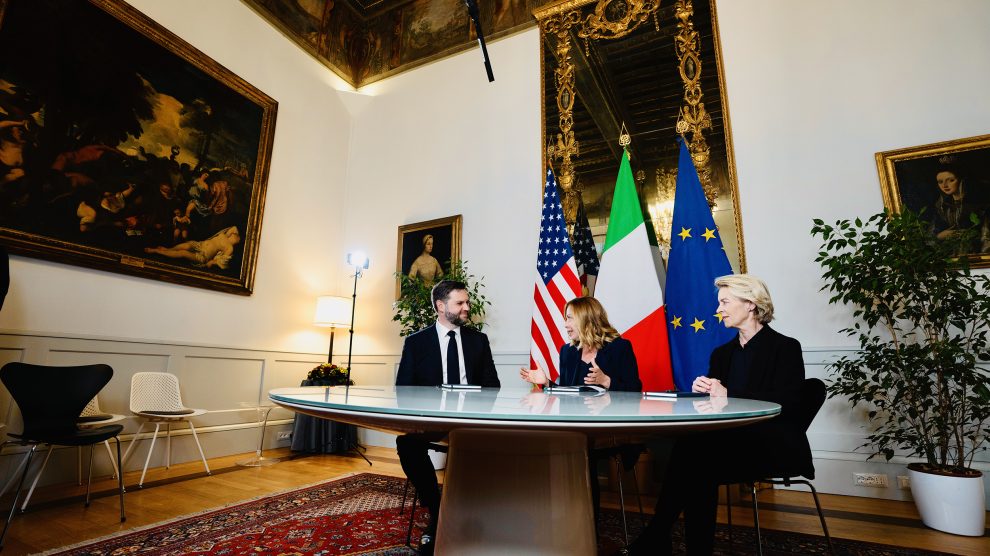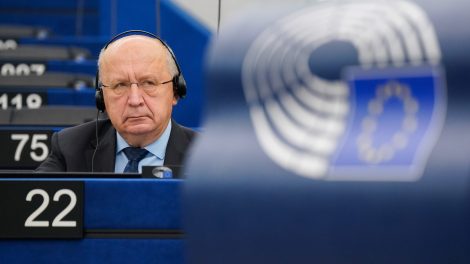A trilateral breakthrough. On Sunday afternoon, shortly after the inauguration mass for Pope Leo XIV, the first American pontiff, Prime Minister Giorgia Meloni welcomed US Vice-President JD Vance, accompanied by Secretary of State Marco Rubio, and European Commission President Ursula von der Leyen to Palazzo Chigi.
- This marked the first high-level EU–US meeting since the dramatic trade tensions began.
- Meloni explained that she proposed the encounter during her April summit with President Donald Trump in Washington.
- “We know how important the relationship is between the EU and the US for a strong West, for our civilisation, also for our economic relations, worth 30% of world trade, and so I hope this meeting can be a new beginning,” she noted.
- She stressed that, while trade falls under the European Commission’s authority, “The role of Italy is mainly the role of trying to help a dialogue, which I think is very important—frank, open, but knowing how important we are for each other.”
Transatlantic coordination calls. In recent hours, Meloni held two phone calls with President Trump.
- Saturday’s call addressed the Ukrainian crisis, ahead of Trump’s planned conversation with President Vladimir Putin on Monday.
- Quint format call on Sunday brought in France’s Emmanuel Macron, the UK’s Sir Keir Starmer and Germany’s Olaf Scholz, during which Meloni reiterated Italy’s—and Europe’s—support for Trump’s efforts towards a just, lasting peace in Ukraine.
- “We stressed the need for an immediate, unconditional ceasefire,” her office reported.
- She also welcomed Ukraine’s readiness to engage in direct leader-level negotiations and urged Moscow to reciprocate.
Zeneli’s take. Italy is asserting itself as a crucial hub in the Euro-Atlantic dialogue, with Prime Minister Meloni positioning Rome as a pragmatic and strategic bridge between Brussels and Washington, said Valbona Zeneli, a nonresident senior fellow at the Atlantic Council think tank in Washington.
- “Meloni played the European card smartly, representing Italian interests in her recent White House meeting with President Trump, but speaking as a credible voice for Europe,” the expert told Decode39.
- Having the Trump administration’s trade stance in its first mandate already raised strategic concerns that remain central in today’s US political debate, Zeneli cautions that purely technical negotiations will fall short unless they address deeper geopolitical and economic frictions.
Natalizia’s speaking. Associate Professor Gabriele Natalizia of Sapienza University in Rome praised Italy’s mediation but warned of the EU’s lack of coherent strategy:
- “Europe must understand its place in the world. We are no longer the centre of the globe or the custodians of a universal model as we were in the 19th century. We retain weight—partly inherited, partly cultivated—but we need a clear vision to navigate the third decade of the 21st century.
- Natalizia’s comments, made in an interview with our sister website Formiche, underscore the urgent need for the EU to define its strategic identity in an evolving global order.





